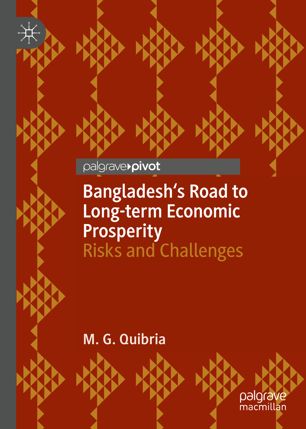

Most ebook files are in PDF format, so you can easily read them using various software such as Foxit Reader or directly on the Google Chrome browser.
Some ebook files are released by publishers in other formats such as .awz, .mobi, .epub, .fb2, etc. You may need to install specific software to read these formats on mobile/PC, such as Calibre.
Please read the tutorial at this link: https://ebookbell.com/faq
We offer FREE conversion to the popular formats you request; however, this may take some time. Therefore, right after payment, please email us, and we will try to provide the service as quickly as possible.
For some exceptional file formats or broken links (if any), please refrain from opening any disputes. Instead, email us first, and we will try to assist within a maximum of 6 hours.
EbookBell Team

0.0
0 reviews“A must read for anyone interested in understanding complexities of development process.”–Fakhruddin Ahmed, former Governor of the Central Bank of Bangladesh
“Policy makers and general readers including specialists would find this lucid analysis very useful.”– Nurul Islam, Deputy Chairman of the First Planning commission of Bangladesh
“The author provides both valuable caution and useful guides to everyone interested in Bangladesh’s economic future.”– Salim Rashid, Emeritus Professor of Economics, University of Illinois, USA
This book examines the recent emergence of Bangladesh as one of the fastest growing economies in the world. Identified by Goldman Sachs as being on a meteoric economic rise, the country has dwarfed India in social improvement also. Attempting to build on these successes, the Bangladeshi government has set the ambitious aim of attaining the status of fully developed country by 2041. This study identifies the trifecta of major risks which could derail Bangladesh’s upwards trajectory: the rapid development of robotics and artificial development, the uncertain political and economic global landscape, and the constant threat of climate change and natural disasters. In order to stay on track, the government will need to address various social, political, policy and institutional challenges facing the economy, including poor governance, inadequate physical infrastructure, skill and educational bottlenecks, demographic burden, dwindling social capital and lack of transformational leadership.